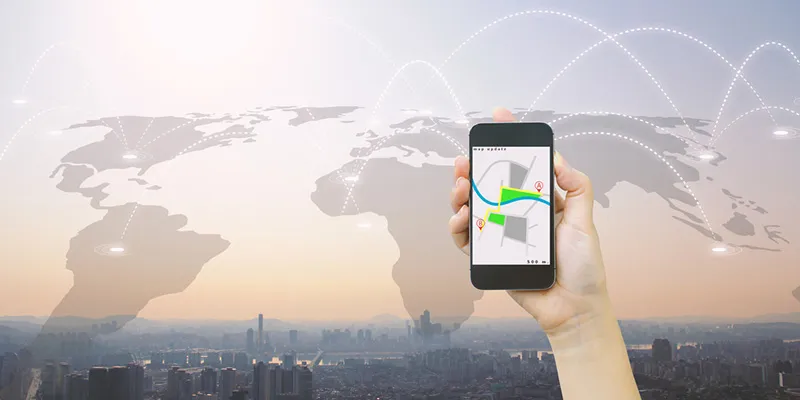Travel technology: a potential growth driver for the travel industry
Big Data, AI and chatbots can enable travel companies to create micro-targeted marketing campaigns that have a higher probability of generating greater ROI for the brand.

The modern consumer is evolving constantly. With their growing affinity to the digital, their progress from one stage of the technology adoption lifecycle to another has been impressively quick. But technology hasn’t entirely altered their consumption habits, as a large number of consumers seek the human touch when it comes to consuming services such as travel. It, therefore, becomes vital for travel companies to ensure quick and efficient delivery of products and services, while facilitating a highly seamless and convenient experience of transacting through both digital, as well as non-digital channels, in order to acquire new customers. Hence, in today’s digital landscape, companies investing in enhancing their technological capabilities are doing so first and foremost to ensure exceptional service delivery to consumers, rather than to catch up with the competition, which was a strategy most travel companies hitherto adopted.
Technology’s role in customer experience, however, doesn’t end at simply acquiring the customer. Rather, it’s only just the initial step in what is a long and continuous process. Brands need to retain customers and build trust by creating additional value through constant and relevant communication.
AI, chatbots, and multi-channel service delivery: the holy trinity for new-age travel technology brands
Together, Big Data and AI can perform multiple functions simultaneously. While Big Data algorithms can scan through large sets of data and extract relevant information, artificial intelligence-driven tools such as machine learning can apply predictive analytic algorithms to identify patterns within these data sets to draw actionable insights. This enables travel companies to create micro-targeted marketing campaigns that have a higher probability of generating greater ROI for the brand.
Personalisation of products, services, and communication by leveraging consumer data and insights are among the key applications of AI. Analysing a customer’s online or offline purchase behaviour in the past can help travel companies choose the most effective ways and channels on which to reach them in the future, enabling travel brands to create additional value for customers through tailor-made offers based on their preferences. Machine learning tools like Natural Language Processing (NLP), coupled with predictive analytics and deep learning algorithms, can analyse a customer’s online activities by leveraging non-conventional sources of data, such as social media. For instance, any picture or post users like/share on Facebook or Instagram, or even a page they follow, can offer deep insights into their own behaviour as customers. It is through such acquired insights that a company can develop appropriate content and deliver it to the customer on the channel of their preference.
AI-driven ultra-personalisation also helps travel agents and companies enhance the customer experience to increase conversion rates. Using such solutions can turn first-time users into repeat customers by delivering exceptional value in the form a unique pre-purchase engagement, as well as a superlative post-purchase experience.
For example, an OTA can send travellers customised suggestions during the trip for activities and experiences based on their profile, preferences, and location data. A massive number of OTAs and travel platforms today employ chatbots to help customers with pre-purchase assistance, helping them with research on holiday packages and offers.
Virtual assistants such as the Google Assistant, Amazon Alexa, and Apple’s Siri can perform tasks for an individual on cue through voice, image or text inputs, accessing user information from multiple external sources and scheduling such information with complete efficiency. It is very much a possibility that in the not-too-distant a future, your virtual assistant could scan your calendar to identify events which would require travel plans and book flights by its own, based on your preferences and past booking information. The impact of technology such as this on the travel industry will be massive, transforming the role of the travel agent and becoming a mediator between travellers and service providers.
Furthermore, what players in the travel and tourism sector need to do is adopt a 360-degree approach to customer service. They can, to enhance their delivery capabilities, create a multichannel system that takes into account the targeted user’s preference in terms of acquiring information and conducting transactions, as well as the limitations of an online-only platform. In a country like India, where digital penetration is still largely confined to Tier-I/II cities, it is extremely important for a travel brand to allow customers to communicate with the brand through multiple channels. In such cases, transparency plays a big role in enhancing trust among users who are still unaccustomed to digital technologies.
For users who already have an existing relationship with offline agents, an omnichannel travel company can also offer the requisite technological support such players need to serve customers better.
In a new age of man-machine symbiosis, AI is working in tandem with human sensibilities and intelligence to offer seamless experiences of transacting on both online and offline channels. The outcome? Enhanced efficiencies, productivity, and more insight-driven services. Machines are also enhancing various functions like marketing to streamline the entire travel process, focussing on individual customers rather than what competitors are doing. It is hardly surprising, then, that these new technologies and the various ways of leveraging them are now defining the marketing strategies and agendas of travel companies on a global level.
(Disclaimer: The views and opinions expressed in this article are those of the author and do not necessarily reflect the views of YourStory.)







